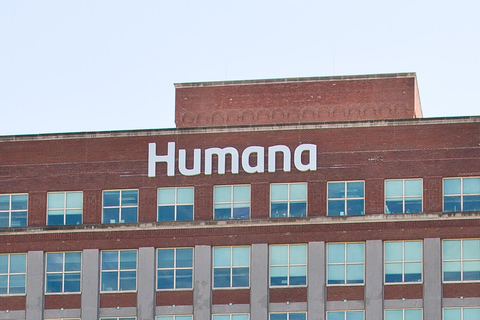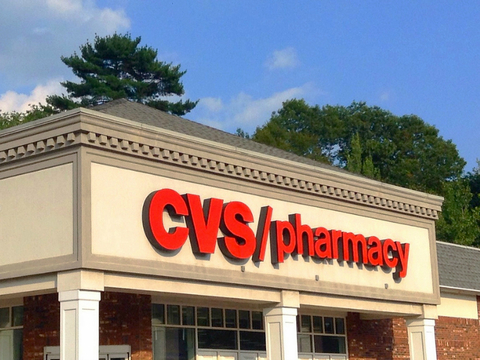Analysts rightly predicted that 2016 would be a big year for healthcare industry mergers, but 2017 is on pace to top it, with a number of blockbuster mergers between big-name health systems headlining the year in M&A.
Kaufman Hall reported that 87 hospital mergers had been recorded through the third quarter of 2017, compared to 102 overall in 2016. By that point, eight transactions had included hospitals with $1 billion or more in revenue, twice as many big-ticket mergers as in all 2016.
"These transactions are driven primarily by strategic imperative and less so by financial drivers," said Anu Singh, managing director of Kaufman Hall.
RELATED: Hospitals may take financial hit following a merger
M&A activity wasn't restricted to hospitals and health systems, as a number of deals in the payer sphere could also significantly impact the industry.
However, though the industry's merger mania continued throughout 2017, a number of major deals were abandoned or put on hold, as the Federal Trade Commission continued to keep a close eye on merger activity.
Here's a recap of some of the biggest healthcare industry mergers that were announced last year:

Kindred Healthcare later in the year.
Aetna and Humana
These two payer giants announced merger plans in 2015 but abandoned the deal in February after a judge blocked it on antitrust grounds.
The Department of Justice and several states sued to block the merger in the summer of 2016, and a judge ruled that merger would unlawfully weaken competition in the Medicare Advantage market.
Anthem and Cigna
If Aetna and Humana parted ways on what one might consider good terms, the same was not true for Anthem and Cigna. This insurance megamerger was also blocked by a federal judge on antitrust grounds, but what followed was a protracted legal dispute between Anthem and Cigna over ending the deal. Anthem finally agreed to end the deal in May after a judge ruled Cigna was free to walk away.
NorthShore University HealthSystem and Advocate Health Care
A potential deal between NorthShore and Advocate was first announced in 2014, but a federal judge blocked it in early March. The two Illinois systems then agreed to abandon the merger in response.
PinnacleHealth and UPMC
PinnacleHealth revealed in March that it would merge with UPMC, the largest integrated health system in Pennsylvania, and would acquire four new hospitals in an effort to expand its reach in the central part of the state. Pinnacle previously pursued a merger with Penn State Hershey.
Partners HealthCare and Care New England Health System
Care New England had been aligned with Partners since 2009, but Partners announced in April that it would acquire the system, which is the second largest in Rhode Island.
Steward Health Care System and IASIS Healthcare LLC
Steward's purchase of IASIS, which was finalized in October after being announced in May, established the system as the largest private hospital operator in the U.S. With the purchase, Steward now operates 36 hospitals across 10 states and is projected to have revenue in excess of $8 billion in 2018.

D.C. hospital into a "health village." (Ascension)
Ascension and Presence Health
Ascension, the largest Catholic health system in the U.S., announced plans to purchase Illinois' largest Catholic system, Presence Health.
If the deal is finalized, Presence will operate under Ascension's AMITA Health venture.
UNC Health Care and Carolinas HealthCare System
A final deal between UNC and Carolinas would create one of the largest nonprofit health systems in the U.S. The two providers said the alignment would increase rural access to healthcare, allow each to negotiate better with payers and potentially save millions of dollars in healthcare costs.
Centene and Fidelis Care
Centene spent much of 2017 expanding its reach in the Affordable Care Act's marketplaces, but it announced in September that it would acquire New York-based Fidelis Care for $3.75 billion. Centene said purchasing the 1.6 million-member insurer would benefit shareholders and allow it to continue to reach underserved areas.
CVS and Aetna
Though Aetna's merger with Humana failed earlier in 2017, it was snapped up later in the year by pharmacy giant CVS in a deal worth $69 billion.
The purchase had been rumored since October and could impact hospitals or health systems that operate urgent clinics, as gaining Aetna's 22 million members would be a significant boon to CVS' MinuteClinics.

industry. (Mike Mozart/CC BY 2.0)
Dignity Health and Catholic Health Initiatives
These two massive Catholic systems signed a deal to create a new nonprofit system, the name of which has yet to be announced. The merger would unite 139 hospitals and 700 care sites across 28 states under the same umbrella. Dignity and CHI had a combined $28.4 billion in revenue in 2017.
Providence St. Joseph Health and Ascension
A deal between these two systems has not officially been announced, but sources told The Wall Street Journal that Providence and Ascension were deep in merger talks. If these two systems were to align, it would create the largest hospital operator in the U.S., with 191 hospitals across 27 states and a combined annual revenue of $44.8 billion.
Humana and Kindred Healthcare
Following its failed merger with Aetna, Humana seemed a ripe target for acquisition by another insurer. Instead, it was revealed in mid-December that it, alongside two private equity firms, would purchase Kindred in a deal worth $4.1 billion. The Kindred deal won't kill talk that Humana could be acquired, however.